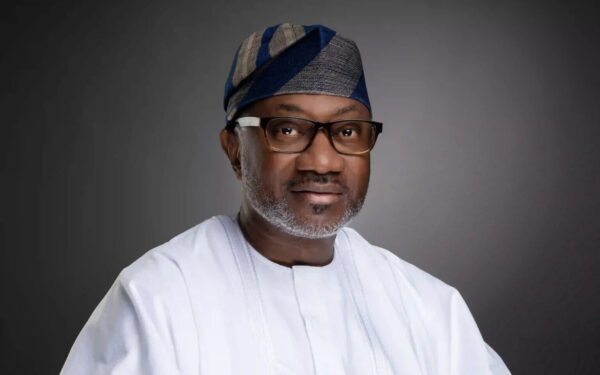By Bernice Agboada, Founder, Vijay Mushrooms
When I first stepped into the Africa Food Systems Forum 2025 in Dakar, I felt a mix of pride and vulnerability. Pride, because as a mushroom farmer from Ghana, I was standing shoulder-to-shoulder with leaders and innovators shaping Africa’s food future. Vulnerability, because I carry an identity that too often invites misunderstanding. I live with albinism in a society where disability is still stigmatized.
Thanks to the Mastercard Foundation, I was not only present in Dakar, but I was also heard. For me, that mattered deeply. Too often, people like me are invisible in conversations that directly affect our lives. Dakar reminded me that we do not just deserve to be in the room; we have solutions worth sharing.
Finding My Voice in Dakar
For months before the Forum, my business, Vijay Mushrooms, had been limited to growing and selling raw mushrooms. It was honest work, but I sometimes wondered if it was enough.
One of the most striking moments for me came during a podcast session on the third day of the Forum. The host asked me two questions that pierced through my self-doubt: How would access to finance change your business? How can innovation transform what you do? Until then, I sold mushrooms in their simplest form. But I left that session envisioning a future where I could create mushroom chips packaged like Pringles and move from small-scale farming to value-added processing.
In that moment, I saw my mushrooms differently. I stopped seeing them only as fresh produce for local markets and started imagining mushroom chips packaged like Pringles, mushroom powder for health-conscious consumers, and value-added products that could travel across borders. It was as if someone had opened a window, and I could suddenly see a bigger horizon.
Conversations with other entrepreneurs cemented that vision. A colleague from Kenya explained the power of packaging in winning new markets. His words stayed with me: sometimes, the way you present your product is as important as the product itself. By the end of the Forum, I knew Vijay Mushrooms could no longer remain small-scale. It was time to transform my business model, to think beyond survival and toward sustainability and competitiveness.
Why Africa Needs Shared Food Labs
One powerful lesson Dakar revealed was just how isolated many young agripreneurs are. We are experimenting, hustling, and innovating but without the facilities to test, refine, and scale our ideas.
I left Dakar convinced of this: Africa needs open-access food research and processing labs. Imagine a space in Ghana where farmers, processors, and innovators could experiment with new food products, packaging designs, and processing technologies. Such space would not only unlock innovation but also build confidence among young entrepreneurs who are often working blindly.
For me personally, it would mean the chance to test mushroom-based snacks, experiment with shelf life, and access sterilization technologies I only learned about at the Forum. For Africa, it would mean a food system that stops exporting raw produce and starts competing globally with value-added products.
Living With Albinism: Breaking Stigma Through Advocacy
My journey is not just about mushrooms; it is about identity. Living with albinism in Ghana means living with stigma. Too many still cling to the false belief that disability is a curse. I have felt the sting of those perceptions, and they often weigh more heavily than business challenges.
That is why Dakar was so powerful for me. Speaking on panels, sharing my story, and engaging with leaders gave me the chance to challenge those misconceptions head-on. I wanted people to see that disability is not weakness but part of the diversity that strengthens our societies. But inclusion will not happen by chance. It must be deliberate.
When we design food systems, we must ask: where are the voices of persons with disabilities? Where are their businesses? Are they given equal access to funding, platforms, and opportunities? If the answer is silence, then we are not building sustainable food systems.
From Doubt to Determination
Before Dakar, I often questioned whether I was doing enough. Could one small mushroom farm really matter in the bigger fight for Africa’s food future? But standing in that space, surrounded by innovators, policymakers, and fellow entrepreneurs, I realized something important: my contribution matters.
I returned home with a new determination; to scale my business, to move from raw production into value-added processing, and to keep using my voice to advocate for inclusion in agriculture and agribusiness.
A Call to Action
To policymakers and investors: Africa’s food future must not be built on exclusion. There would be no scale without inclusion. This then means that we need to invest deliberately in agriculture and agribusiness, not just in technology. We must also support the creation of open-access research and processing labs where innovation can flourish. And above all, ensure that inclusion is intentional and not an afterthought, but a guiding principle.
To fellow young people: my message is for us to start where we are, no matter how small. My journey began with a handful of mushrooms, nurtured through the Empower 360 project of the Springboard Roadshow Foundation and supported by the Mastercard Foundation. Today, that humble beginning has become a vision for export and impact. Your condition, your location, or your limitations do not define your potential.
For me, the Africa Food Systems Forum 2025 was not just an event, it was a turning point. It reminded me that Africa’s food future will be shaped not only by sustainability and innovation but by the courage to include everyone. My story as a mushroom farmer with albinism is one of many. And if Dakar taught me anything, it is this: when all voices are heard, Africa’s food systems can, and will feed the world.
The post Beyond Dakar: A Mushroom Farmer’s Call for inclusion in Africa’s food systems appeared first on The Herald ghana.


